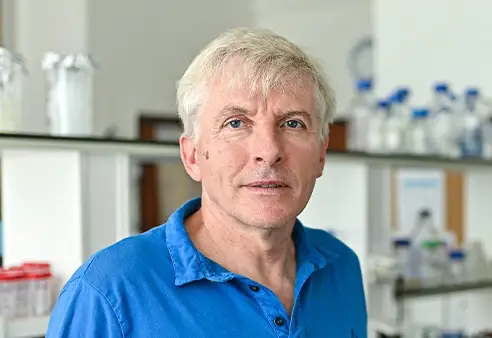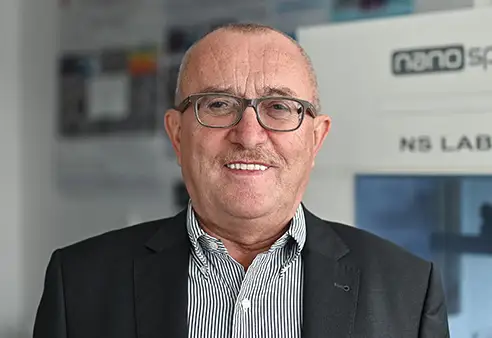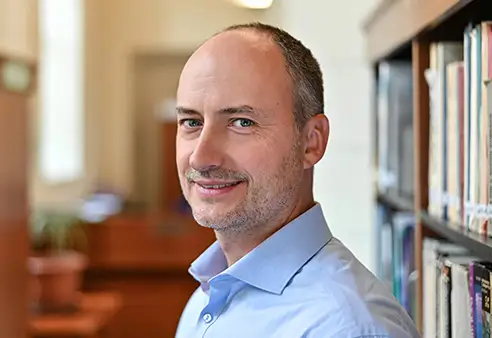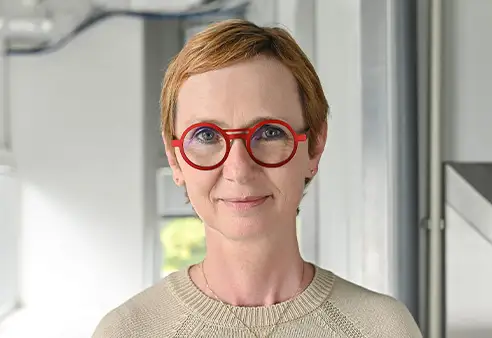No cell or organ exists on its own and they communicate with each other in some way. The research of these connections within the framework of integrated physiology and pathophysiology is what Mgr. Jozef Ukropec, DrSc does. He works as the head of the Department of Metabolic Disorders Research at the Institute of Experimental Endocrinology of the Biomedical Centre of the Slovak Academy of Sciences (SAS) in Bratislava.
Physiology focuses on the functions of the organism, organs and organ systems, pathophysiology deals with their changes and diseases. However, Jozef Ukropec in his scientific work studies the molecular level of it. He studies the communication of individual cells and organs in situations that are energy-intensive for our body, such as starving, exercising or soaking in cold water, as well as in diseases of excess energy. Such diseases are obesity and type 2 diabetes.
He is interested in the connection between the muscle and other organs, especially the adipose tissue, which provides the muscle with a source of energy. He considers adipose tissue to be a fascinating organ. Many people do not know that we have several types of adipose tissue. The brown adipose tissue is relatively less familiar. "Small mammals have it between the shoulder blades on their backs and only owing to it they get to survive the cold night, as it allows them to generate heat. We have long thought that there is no such tissue in an adult person's body, but we have known for about ten years now that we have brown fat along the large blood vessels in our necks and we can activate it, for example when we are cold." the scientist explains.
In addition to research at the cellular level, Jozef Ukropec and his wife Barbara also promote movement as a cure. They see its importance not only in improving physical fitness, but they also examine it in terms of maintaining cognitive abilities that come with aging and in the treatment of various chronic diseases. In cooperation with the National Cancer Institute, they observe the effect of exercise on patients cured of cancer.
They cooperate with the Ministry of Health in the creation of new standard preventive and therapeutic procedures for some chronic diseases, which are based mainly on lifestyle adjustments. In the Physical Activity Centre, which was founded and run by his wife, they get to monitor the impact of exercise on the fitness, metabolism and memory of seniors for a long time.
Jozef Ukropec studied pharmacy. As a doctoral student, he was given the opportunity to devote himself to scientific work at the Institute of Experimental Endocrinology of the Slovak Academy of Sciences, where he became fascinated by the possibilities of the pathophysiology of obesity, insulin resistance and type 2 diabetes. During his doctoral studies in 1999, he travelled to Oslo, Norway, where he also met scientists who had been involved in the discovery of the leptin molecule in the mid-1990s. After his PhD studies together with his wife, they took the opportunity to work in the USA. They selected the Pennington Biomedical Research Centre in Baton Rouge, Louisiana out of several options. After a very stimulating period of more than three years, they decided to come back to Slovakia and continue their scientific work at the SAS.
Jozef Ukropec enjoys doing sports in his free time. In addition to various seasonal sports, he and his wife have been ardent runners for years. He doesn't have time to train for a marathon, but he runs about 1,200 kilometres a year. Additionally, he enjoys spending time with his family and dog, as well as working in the garden, travelling and studying foreign languages online. He likes theatre, to be inspired by a good book and listening to historical podcasts.



